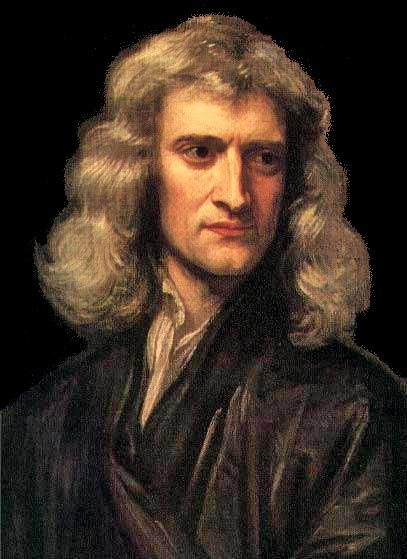
THE LIFE OF SIR ISAAC NEWTON.
NEWTON is said to be "the most remarkable mathematician and natural philosopher of his own or perhaps of any other age." He was born the year that Galileo, the great Italian philosopher, died. He was a gentle, affectionate, and thoughtful boy, loved by all who knew him. As a man, he was a believer in God and the Bible.
On the day that Oliver Cromwell died, a great storm raged all over England. It was on this day, when Newton was sixteen years of age that he made his first purely scientific experiment. To find the force of the wind, he first jumped with the wind, then against it; then by jumping on a calm day, and comparing, he was able to compute the force of the storm. One time, at a dinner in London, given in honor of the French ambassador, some of the English guests were in doubt which ought to be toasted first, the king of England or the king of France. Then Sir Isaac settled the matter by saying, "Let us drink the health of all honest persons, to what-ever country they belong. We are all friends,
because we unanimously aim at the only object worthy of man, which is the knowledge of truth.
We are also of the same religion, since, leading a simple life, we conform ourselves to what is right, and we endeavor sincerely to give to the Supreme Being that worship which, according to our feeble lights, we are persuaded will please him most." When James II was trying to make England a Catholic country, Newton opposed the measure with much earnestness. He was a great man, but just before his death he said, "I do not know what I may appear to the world, but to myself I seem to have been only like a boy playing on the seashore, and diverting myself in now and then finding a prettier shell than ordinary, whilst the great ocean of truth lay all undiscovered before me."
On his monument are these words:-
"Here lies Sir Isaac Newton, who, by a vigor of mind almost supernatural, first demonstrated the motions and figures of the planets, the paths of the comets, and the tides of the ocean; a faithful interpreter of nature, antiquity, and the Holy Scriptures. Let mortals rejoice that there has existed such and so great an ornament to the human race."
JOHN R. CALKINS